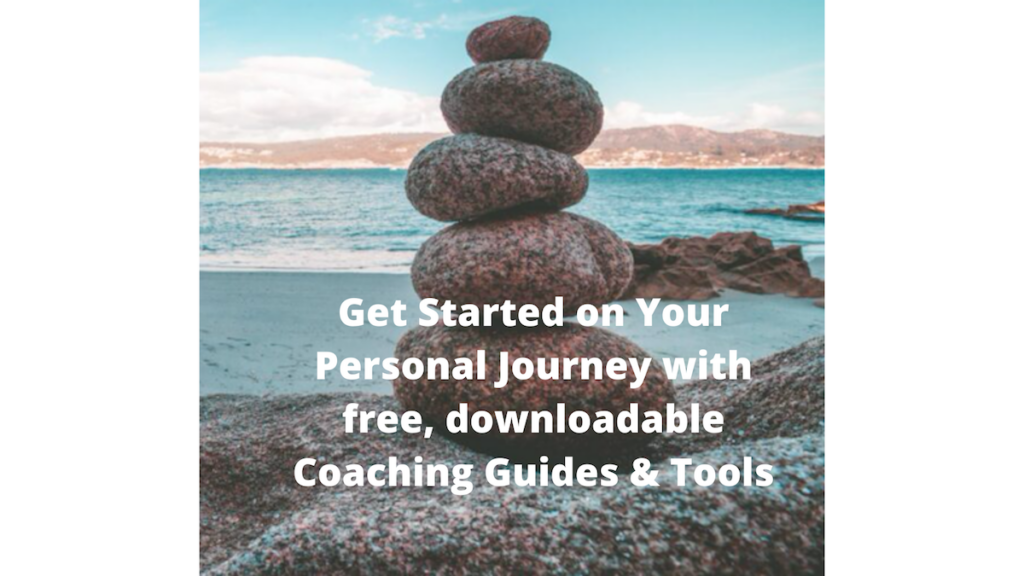As a leader or a professional, if you are looking to maximize your potential and achieve your vision, you need to prepare both your body and mind to be at optimum. And, surprisingly or unsurprisingly, recent research shows that sleep, that is, getting adequate and quality sleep, is key to learning and retention, building memory, and acting with the right motivation, judgement, and perception. Research further shows that the right type of sleep is key to a healthy body.
Therefore, the first step to achieving your goals and vision could very well be to focus on restorative practices that can help improve the quality and quantity of your sleep.
This article describes 10 practices that can help you to build a regime that works for you throughout the day and night and create a calm and positive presence in your work and life.
1. Mindfulness in the Day eases Sleep at Night
If you spend your day always on the go and perhaps, in a frazzled or agitated state, then it will be that much more difficult to relax and go to sleep at the right time and for the right duration.
A very powerful technique that you can use during the day to stay grounded, calm, and in the moment, no matter how stressful or busy you are is Mindfulness.
My favorite definition of mindfulness comes from the Greater Good Science Center at the University of California at Berkeley, which defines mindfulness as “maintaining a moment-by-moment awareness of our thoughts, feelings, bodily sensations, and surrounding environment, through a gentle, nurturing lens.”
Here are my two tips to practicing mindfulness throughout the day:
- Focus on what you are doing right now, right here. Do not think about what you need to do in the next hour, after lunch, or in the evening. Give your full attention to the task at hand.
- At least once an hour, take a couple of minutes to straighten up, stretch, and take deep breaths to center and ground yourself. Let go of any emotion that you are feeling.
SUMMARY
Mindfulness is a practice; the more you practice, the better you will become at being calm and proceeding with intent throughout your day. You will find yourself recovering quickly from unexpected challenges, stresses, or disappointments. In fact, as you become proficient at mindfulness, don’t be surprised if you start to sleep better, accomplish more, and with greater ease!
2. Stick to a Schedule
Your body’s circadian rhythm is a natural timekeeping clock that functions on a set 24-hour loop and it aligns itself with sunrise and sunset. Having irregular sleep patterns can alter your circadian rhythm including the levels of melatonin, which signal your brain to sleep. Being consistent with your sleep and waking times can aid long-term sleep quality. One study noted that participants who had irregular sleeping patterns and went to bed late on the weekends reported poor sleep.
If you struggle with sleep, try to get in the habit of waking up and going to bed at similar times. After several weeks, you may not even need an alarm.
SUMMARY
Try to get into a regular sleep/wake cycle — especially on the weekends. If possible, try to wake up naturally at a similar time every day.
3. Get More Sun
Natural sunlight or bright light during the day helps keep your circadian rhythm healthy.

Sunlight improves daytime energy, as well as nighttime sleep quality and duration.
In people with insomnia, daytime bright light exposure improved sleep quality and duration and also reduced the time it took to fall asleep by 83%.
A similar study in older adults found that 2 hours of bright light exposure during the day increased the amount of sleep by 2 hours and sleep efficiency by 80%.
While most research involves people with severe sleep issues, daily light exposure will most likely help you even if you experience average sleep.
Try getting daily sunlight exposure or — if this is not practical — you might consider investing in light therapy by using an artificial bright light device.
SUMMARY
Daily sunlight or artificial bright light can improve sleep quality and duration, especially if you have severe sleep issues or insomnia.
4. Exercise Regularly — But Not Before Bed
Exercise is one of the best science-backed ways to improve your sleep and health. It can enhance all aspects of sleep and has been used to reduce symptoms of insomnia.
One study in older adults determined that exercise nearly halved the amount of time it took to fall asleep and provided 41 more minutes of sleep at night. In people with severe insomnia, exercise offered more benefits than most drugs. Exercise reduced time to fall asleep by 55%, total night wakefulness by 30%, and anxiety by 15% while increasing total sleep time by 18%
Although daily exercise is key for a good night’s sleep, performing it too late in the day may cause sleep problems.
This is due to the stimulatory effect of exercise, which increases alertness and hormones like epinephrine and adrenaline. Do keep in mind that some studies show no negative effects of late evening exercise, so it clearly depends on the individual.
SUMMARY
Regular exercise during daylight hours is one of the best ways to ensure a good night’s sleep.
5. Eat Healthy
A balanced and consistent diet made up mostly of vegetables, fruits, whole grains, fish, and meat is important. I go by Michael Pollan’s advice: “Don’t eat anything your great grandmother wouldn’t recognize as food.” And, his second piece of advice: “Eat food. Not too much. Mostly plants.”
You may also consider not eating right before sleep so you are not still digesting food while trying to sleep. Eating right before sleeping can also cause acid reflux which can keep you awake.
Consider supplements such as magnesium, melatonin, or zinc that have shown promise in insomnia trials if you suffer from insomnia.
SUMMARY
A balanced and consistent diet can help you get better sleep.
6. Limit Caffeine Later in the Day
Caffeine has numerous benefits and is consumed by 90% of the U.S. population. A single dose can enhance focus, energy, and sports performance; however, when consumed late in the day, caffeine stimulates your nervous system and may stop your body from naturally relaxing at night.
In one study, consuming caffeine up to six hours before bed significantly worsened sleep quality; therefore, drinking large amounts of coffee after 3 or 4 p.m. is not recommended, especially if you’re sensitive to caffeine or have trouble sleeping. If you do crave a cup of coffee in the late afternoon or evening, stick with decaffeinated coffee.
SUMMARY
Caffeine can significantly worsen sleep quality, especially if you drink large amounts in the late afternoon or evening.
7. Drink Fluids Earlier in the Day
Nocturia is the medical term for excessive urination during the night. It affects sleep quality and daytime energy. Drinking large amounts of liquids before bed can lead to similar symptoms, though some people are more sensitive than others.
Although hydration is vital for your health, it’s wise to reduce your fluid intake in the late evening.
Try to not drink any fluids 1–2 hours before going to bed. You should also use the bathroom right before going to bed, as this may decrease your chances of waking in the night.
SUMMARY
Reduce fluid intake in the late evening and try to use the bathroom right before bed.
8. Have a Light Dinner
Eating late at night may negatively affect both sleep quality and the natural release of Human Growth Hormone (HGH) and melatonin. That said, the quality and type of your late-night snack may play a role as well.
In one study, a high carb meal eaten four hours before bed helped people fall asleep faster. Interestingly, another study discovered that a low carb diet also improved sleep, indicating that carbs aren’t always necessary, especially if you’re used to a low carb diet
SUMMARY
Consuming a large meal before bed can lead to poor sleep and hormone disruption. However, certain meals and snacks a few hours before bed may help.
9. Avoid Blue Light in the Evening
Exposure to light during the day is beneficial, but nighttime light exposure has the opposite effect. Again, this is due to its effect on your circadian rhythm, tricking your brain into thinking it’s still daytime. This reduces hormones like melatonin, which help you relax and get deep sleep
Blue light—emitted by electronic devices like smartphones and computers in large amounts—is the worst in this regard.
There are several popular methods you can use to reduce nighttime blue light exposure. These include:
- Wear glasses that block blue light.
- Download an app such as f.lux to block blue light on your laptop or computer.
- Install an app that blocks blue light on your smartphone. These are available for both iPhones and Android models.
- Stop watching TV and turn off any bright lights two hours before heading to bed.
SUMMARY
Blue light tricks your body into thinking it’s daytime. There are several ways you can reduce blue light exposure in the evening. A lot of people take their phones to bed or sit in bed watching TV or reading. People who tend to fall asleep with the TV on or their cell phone in hand will likely get a light sleep compared to someone going without them. The blue light from the screens tends to keep people awake for longer and can lead to a low amount of deep sleep during the night. Moreover, if you take these awake activities out of the bedroom, your body will start to subconsciously view the bedroom as a place for sleeping.
So, when you do go to bed, your body will already be preparing itself for sleep, making it more likely you’ll experience deep sleep.
10. Consider Cutting out Alcohol in the Evening
Having a couple of drinks at night can negatively affect your sleep and hormones. Alcohol is known to cause or increase the symptoms of sleep apnea, snoring, and disrupted sleep patterns
It also alters nighttime melatonin production, which plays a key role in your body’s circadian rhythm.
SUMMARY
Avoid alcohol before bed, as it can reduce nighttime melatonin production and lead to disrupted sleep patterns.
How a Wellness Coach Could Help You
Many times a coach can be very helpful on your wellness journey by helping you discover what works best for your lifestyle and suggesting options you may not have considered. A coach can also help you with accountability as you make drastic changes in your lifestyle. You might want to check out the MMS NorCal Coaching Collective which features coaches with many modalities, skills, and passions.
Look for a future blog post on how to prepare for sleep.




